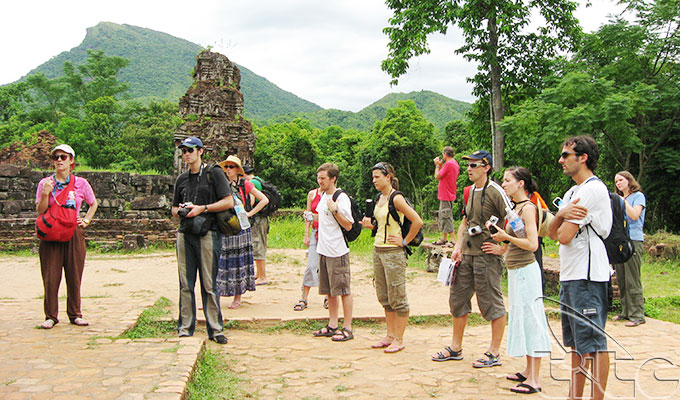Viet Nam welcomed 6.2 million foreign visitors in the first half of the year, a year-on-year increase of 30.2 percent, and served 40 million domestic tourists, earning a total of 262 trillion VND (11.5 billion USD) in revenue.

According to Chairman of the Viet Nam National Administration of Tourism Nguyen Van Tuan, the first six months marked a period of high-quality growth for the nation’s tourism industry.
He attributed this to efforts made by the sector and the guidance of the Party and State.
According to Tuan, early this year, the Politburo issued Resolution 08-NQ/TW on tourism development, aiming to turn it into a spearhead economic sector. In June, the National Assembly approved the revised Law on Tourism, aiming to facilitate tourism development.
Viet Nam also held the APEC High Level Policy Dialogue on Sustainable Tourism in Ha Long city, the northern coastal province of Quang Ninh, part of the counctry’s efforts to promote regional sustainable tourism development.
During the period, the tourism sector has focused on improving the quality of tourism services and managing travelling and tour guide services nationwide.
Many new projects from strategic investors have been completed and put into operation nationwide, improving service capacity.
The Government plans to expand several airports to meet increasing demand of visitors, he said, adding that attention has also been paid to managing tourism sites and ensuring safety and security for holiday-makers.
Regarding online visa applications for tourists, Tuan said this is an important policy and is an effective tool to improve competitiveness, attracting more foreign tourist arrivals.
In February, the Government adopted online visas for citizens from 40 markets, he noted, adding that the Government also decided to extend visa waivers for foreigners from the UK, France, Germany, Spain, Italy and Belarus until June 30, 2018.
He also mentioned establishing a fund to support tourism development in 2018, saying that it is hoped to create impetus for the industry.
Sectors and localities need to work together to solve difficulties and overcome shortages, in order to realise the goal of welcoming 13 million foreign tourists in 2017, Tuan stressed.